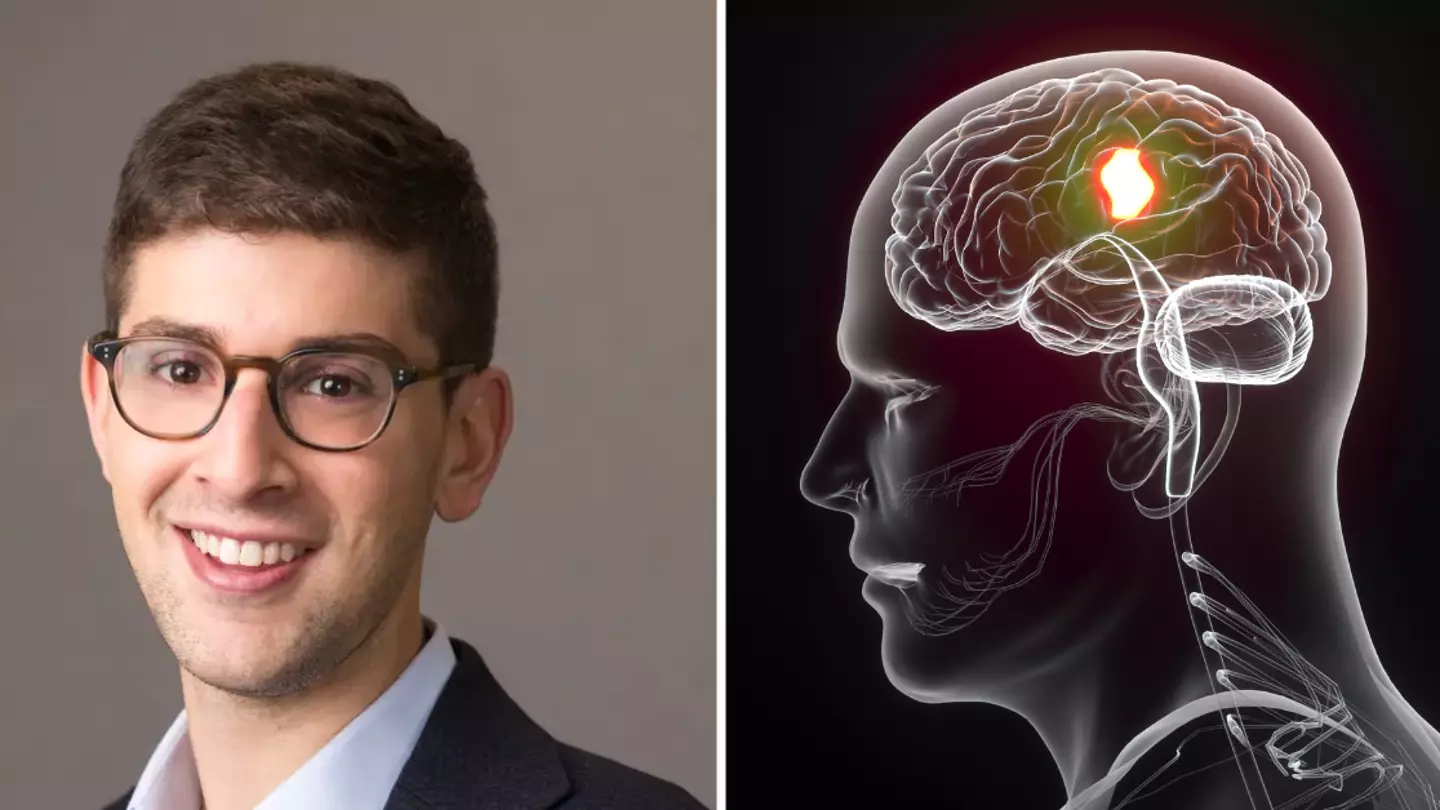
We should all be getting better acquainted with our brains, a neurologist has warned.
In the UK, dementia - a general term that describes a loss of memory, cognitive ability and judgement - has reportedly been the leading cause of death for the decade. The symptoms of the incurable disease develop slowly, and become harder to handle over time.
As such, it's crucial for the symptoms to be recognised and acted upon early, to determine the correct course of treatment.
Dementia isn't the only brain-based killer, however.
Advert
Ailments like strokes and aneurysms affect the brain much quicker, with the symptoms often seeming to appear out of the blue.
Given the variation in the different illnesses that can affect this vital organ, as well as the vastly contrasting means of treatment, one neurologist has emphasised the importance of paying more attention to our brain health.

Speaking to The Post, Dr Joshua Nass, of the Michigan Institute for Neurological Disorders, revealed: "As a neurologist at MIND and the medical director of the stroke program at Henry Ford St John Hospital, I see patients all the time who brush off symptoms.
"Many times, it is the families who notice first. Unfortunately, sometimes it is too late."
Thankfully, the brain can often show signs that its functions are starting to wain - 10 of which, Dr Nass says, are surprisingly common.
1) Sudden headache
According to the neurologist, if you're not someone who often finds themselves complaining of a headache, and a harsh, sharp pain in your head has suddenly come on out of the blue, a trip to A&E might be necessary.
"[If] this is the worst headache of your life, this could be a sign of an aneurysm or bleed, and this should be assessed emergency at the ER," he said.
For those unfamiliar, aneurysms describe a bulge in a blood vessel, which is caused by a weakness in the vessel wall.

This weakening could have been triggered by high blood pressure, which thins the walls and can burst - or rupture - if it is stretched too far.
Bursts of these larger bulges can press upon the nerves or brain tissue, resulting in headaches or problems with vision.
2) Numbness
According to Dr Nass, if you suddenly experience the feeling of numbness one one side of the body of face, an ambulance should be called immediately.
"Even if it goes away in a few minutes, this may represent a warning sign for a stroke," he added.
Strokes occur when blood flow to the brain is disrupted for some reason, which in turn deprives the brain of both oxygen and nutrients.
In the long-term, this can cause permanent damage to the brain, or physical or mental disablement.
3) Difficulty speaking
Like the feeling of numbness, one of the most common indicators of a stroke is slurred speech, and a general difficulty with communicating.

4) Issues with vision
According to Dr Nass, suddenly seeing double, or enduring a slow loss of vision altogether, could stem from a number of issues, including optic neuritis - the inflammation of the optic nerve, which is responsible for messages from the eye to the brain.
5) Confusion
As we mentioned earlier, the most common symptom of dementia is confusion, which includes memory loss.
"With new technology, we can detect dementia earlier, and newer treatment options are available to help prevent or slow down decline," Dr Nass explained - adding that this mightn't be the only explanation for confusion.
.jpg)
He also gave a shout out to the possibility of metabolic imbalances having a part to play, this describing the disruption in the body's metabolic processes, which allow the body to convert food into energy.
6) Dizziness, or lack of balance
If you've suffered clumsiness as long as you can remember, this next one might not apply to you.
If you've otherwise been quite steady on your feet, but suddenly feel rather unsteady or suffer from a fall, the neurologist believes an inner ear problem might be at fault.
Believe it or not, the inner ear is responsible for preventing phenomena like vertigo, which stem from various conditions affecting the vestibular system, so issues in this area could be an explanation for your sudden dizziness.
However, Dr Nass added: "If persistent, this may represent more than an inner ear problem, and brain imaging may be warranted."
7) Seizures
These might not always be as dramatic as they sound, with Dr Nass emphasising that seizures can include 'staring spells or muscle jerks'.

In any case, he adds, persistent seizures should be inspected by a GP.
"Especially if it’s happening for the first time, a full workup to exclude a brain problem (including a tumour) should be completed," the medic explained.
8) Fainting
In a similar way to the dizziness example we already gave, fading in and out of consciousness or fainting could indicate something seriously wrong with the brain, despite being most commonly linked to heart problems.
"Although this typically may represent a cardiovascular issue, a brain etiology must be excluded," the neurologist explained, referring to a disease that has taken hold the organ.
This could include a transient ischemic attack, otherwise known as a 'mini stroke', which is caused by a temporary disruption in the blood supply to part of the brain, and is known to cause fainting-like symptoms.
9) Tingling

As Dr Nass explains, in the majority of cases, a numbness or a tingling sensation in the hands or feet could indicate an issue with blood sugar levels, or diabetes.
He adds, however, that we shouldn't discount the possibility of this having been caused by a fault in the brain - like multiple sclerosis.
This incurable condition occurs when your your immune system mistakenly attacks the brain and nerves for a reason that, to this day, remains unknown by medical experts.
10) Tremors
There could be several explanations for uncontrollable movements of the hands and limbs, though Parkinson's disease is thought to be the most common.
This neurodegenerative disorder that primarily affects movement, and is caused by a loss of nerve cells in part of the brain. The most common symptoms of the ailment include shaking or stiffness.
Dr Nass adds, however, that tumours can also cause mobility and stability issues, especially in the region of the brain.